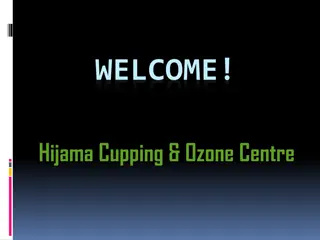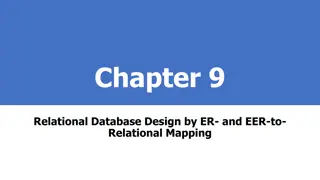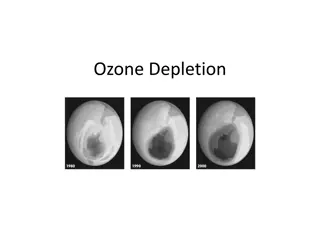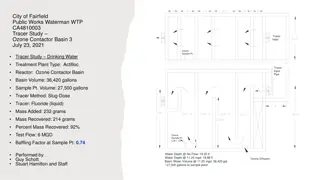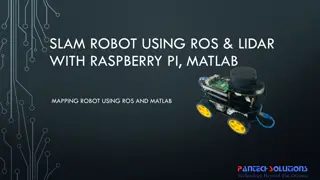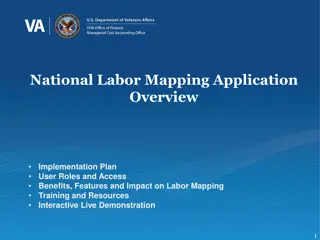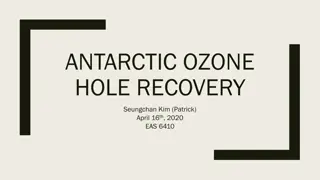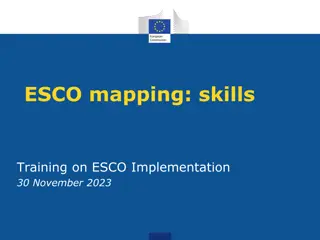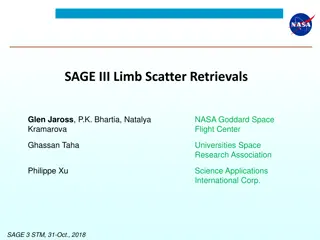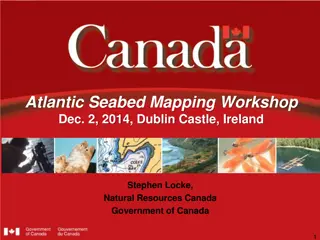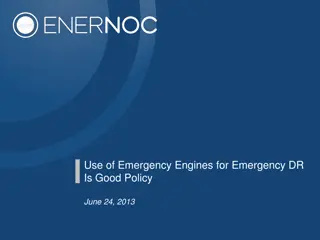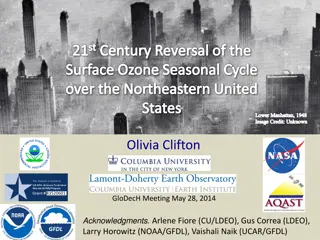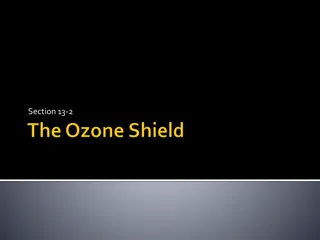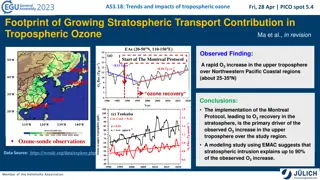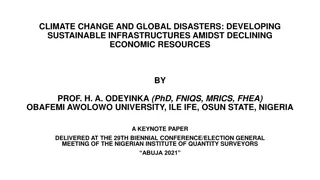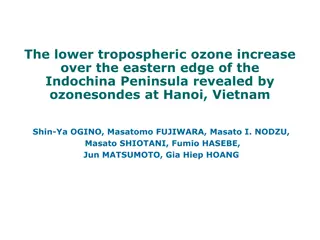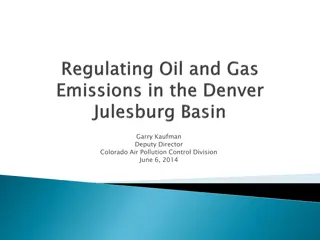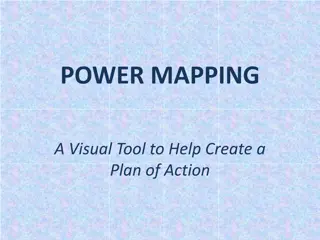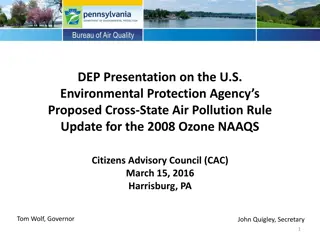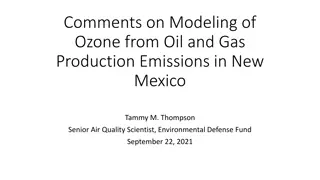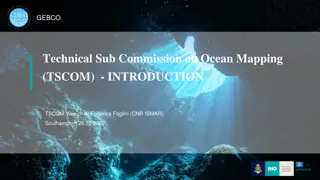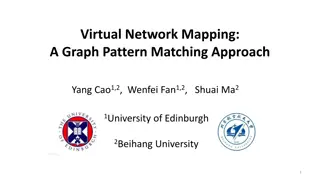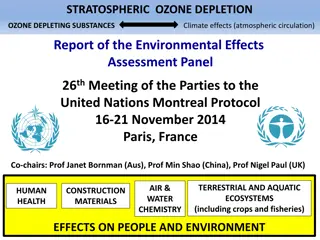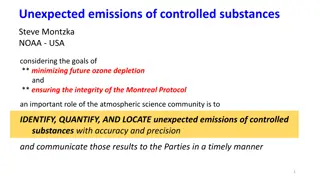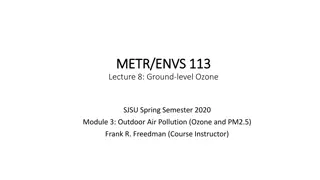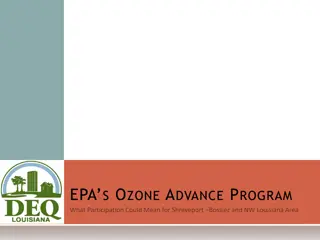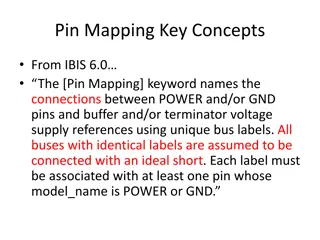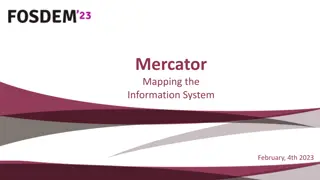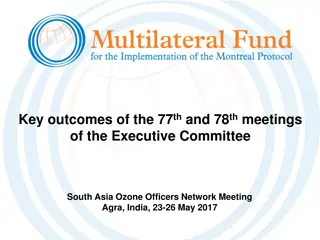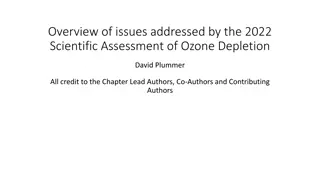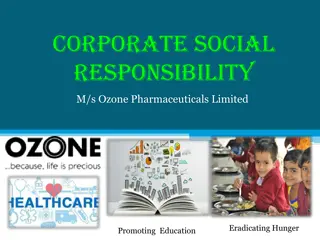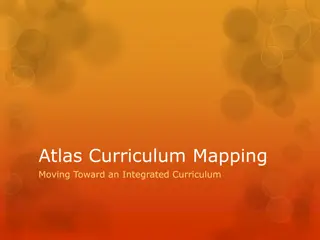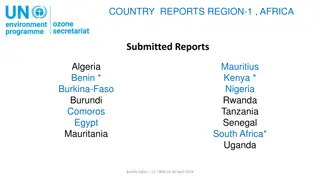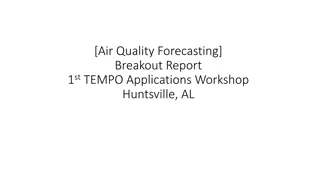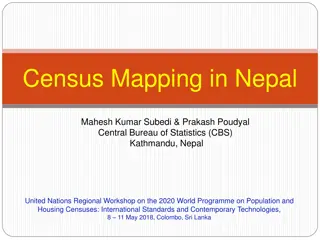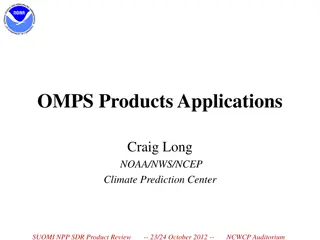The Role of Sunlight, Ozone, and Plant Life in Earth's Atmosphere
Sunlight plays a crucial role in the formation of ozone from oxygen, leading to the protection of plant life against harmful UV radiation. The ozone produced by sunlight helps in the photosynthesis process of plants, which in turn release oxygen, absorb CO2, and contribute to the overall balance of
7 views • 23 slides
Best facility for Ozone Therapy in Soho
Hijama Cupping & Ozone Centre serves the Best facility for Ozone Therapy in Soho. They offers a wide range of services including: IV drip, skin whitening, ozone therapy, PRP plasma, hair loss treatment, cupping and much more. Experience the transformative power of ancient wisdom and modern innovatio
0 views • 6 slides
Understanding Relational Database Design and Mapping Techniques
Explore the process of mapping Entity-Relationship (ER) and Enhanced Entity-Relationship (EER) models to relational databases. Learn about relational model concepts, mapping algorithms, and the goals and steps involved in the mapping process. Discover how to preserve information, maintain constraint
1 views • 42 slides
Understanding Ozone Depletion: Causes and Impact
The ozone layer, found in the stratosphere at 15 to 40 km altitude, plays a crucial role in absorbing harmful ultraviolet radiation. However, due to the use of Chlorofluorocarbons (CFCs), the ozone layer has been depleted, leading to the formation of the ozone hole. This depletion is caused by chemi
0 views • 27 slides
Tracer Study at City of Fairfield Public Works Waterman WTP - Ozone Contact Basin
Tracer study conducted at City of Fairfield Public Works Waterman Water Treatment Plant focused on the Ozone Contactor Basin, involving the injection of fluoride as a tracer, monitoring flow rates, and analyzing tracer concentrations over specific time intervals. The study aimed to assess the effici
0 views • 16 slides
Mapping Robot using ROS, Lidar with Raspberry Pi & MATLAB
Turtle.bot is a popular product for home service robots, utilizing SLAM and navigation technologies. It features gyro, Kinect sensors, Lidar, and a laptop for mapping. The robot localizes and navigates using ROS in Raspberry Pi connected with MATLAB. ROS (Robot Operating System) is a set of software
0 views • 17 slides
National Labor Mapping Application User Roles and Access Overview
This detailed overview outlines the implementation plan, user roles, and access benefits of the National Labor Mapping Application. Users are assigned specific roles with established access through domain usernames, enhancing security measures. Different user roles such as VISN Coordinators, Site Te
0 views • 14 slides
Antarctic Ozone Hole Recovery and Future Challenges
Depletion of the stratospheric ozone layer in Antarctica due to chlorine emissions led to the formation of the ozone hole. Since the phasing out of Ozone-Depleting Substances (ODSs) under the Montreal Protocol, there has been a reduction in anthropogenic ODSs in the troposphere. Observations and che
0 views • 12 slides
Mapping Methodology for Establishing ESCO Relations
Learn how to set up teams, collect resources, compare classifications, and establish mapping relations for ESCO implementation projects. Get insights on using computer-assisted suggestions, updating mapping tables, and selecting mapping projects. Explore techniques for navigating classifications, br
0 views • 21 slides
Exploring Texture Mapping in Computer Graphics
Delve into the world of texture mapping as a solution to the smoothness of polygons in computer graphics. Learn how to create textured scenes using techniques such as bump mapping and environmental mapping. Discover the process of representing textures, working with curved surfaces, and mapping onto
2 views • 24 slides
Innovative LiDAR Cave Mapper for Cavers
Develop a portable and cost-effective LiDAR cave mapper to assist freelance cavers in mapping caves efficiently. The project aims to create a device that is affordable, DIY-style, and open-source, making cave mapping more accessible and accurate. The team from FAMU-FSU College of Engineering strives
0 views • 22 slides
Advanced Analysis of SAGE III Limb Scatter Retrievals
The proposed effort focuses on enhancing LaRC operational retrieval codes for SAGE LS data, correcting Level 1 radiances, and recommending LS operational scenarios. OMPS LS retrieval algorithms for aerosol and ozone, as well as the SAGE/M3 LS ozone retrieval approach, are detailed. Out-of-field stra
0 views • 12 slides
Atlantic Seabed Mapping Workshop Summary
Workshop held in Dublin Castle on Dec 2, 2014, discussed current and future plans for seabed mapping in the Atlantic. Key topics included navigational charting, initiatives by various organizations, challenges of disjointed mapping efforts, and proposed actions to address issues. Recommendations inc
1 views • 5 slides
Analysis of Emergency Engines and Ozone Levels in Demand Response Events
Use of emergency engines in demand response (DR) events does not correlate with high ozone levels, as shown by a study conducted from 2005 to 2011 across various regions like PJM, ISO NE, NYISO, and ERCOT. The analysis reveals that emergency DR events do not align with high ozone days, indicating no
0 views • 12 slides
Addressing Misconceptions in Writing Across the Curriculum (WAC) Classes
WAC approaches in geology classes aim to correct persistent misconceptions through gateway activities, focusing on topics like CFCs and ozone depletion. By engaging students in discussions and written responses, educators correct prior misunderstandings to enhance learning outcomes and clarify disti
0 views • 6 slides
Surface Ozone Seasonal Cycle Reversal Study in Northeastern United States Lower Manhattan
Study on the reversal of the surface ozone seasonal cycle over Northeastern United States Lower Manhattan, analyzing the impact of NOx and VOC emissions on Surface O3 levels. Research shows a 26% decrease in regional NOx emissions leading to changes in the seasonal cycle of surface ozone concentrati
0 views • 24 slides
Understanding Ozone Depletion and Its Impact on the Environment
The stratosphere contains a vital layer of ozone that shields the Earth from harmful UV radiation. However, human activities, particularly the use of chlorofluorocarbons (CFCs), have led to the depletion of this protective ozone layer, especially over the poles. This thinning of ozone poses signific
0 views • 10 slides
Impacts of Tropospheric Ozone and Stratospheric Transport Contribution
The study examines the trends and impacts of tropospheric ozone, focusing on the significant increase observed over the Northwestern Pacific Coastal regions. It explores the primary drivers behind this ozone increase, attributing up to 90% to stratospheric intrusions as a result of the Montreal Prot
0 views • 6 slides
Developing Sustainable Infrastructures Amid Climate Change and Global Disasters
Prof. H.A. Odeyinka's keynote paper discusses the importance of developing sustainable infrastructures amidst declining economic resources in the face of climate change and global disasters. It highlights the concepts of climate change, sustainable development, atmospheric layers, ozone layer, carbo
0 views • 25 slides
Study on Lower Tropospheric Ozone Increase in Indochina Peninsula
Research conducted in Hanoi, Vietnam, reveals an increase in lower tropospheric ozone over the eastern edge of the Indochina Peninsula. The study focuses on understanding the three-dimensional distribution and temporal variation of ozone to comprehend air pollution and atmospheric variability. Findi
0 views • 11 slides
Strategies for Oil and Gas Emission Reduction in Colorado
Garry Kaufman, Deputy Director of the Colorado Air Pollution Control Division, outlines efforts to reduce air pollution from oil and gas emissions, focusing on past initiatives, ozone standards, and methane reduction strategies. The historical context sheds light on the evolution of regulations and
0 views • 25 slides
Power Mapping: A Visual Tool for Advocates to Influence Change
Power mapping is a visual tool used by advocates to identify key individuals to target in order to effect change. It involves mapping the community around an issue or campaign, identifying decision-makers, adversaries, and influential stakeholders. By following important steps and asking relevant qu
0 views • 10 slides
U.S. EPA's Proposed Cross-State Air Pollution Rule Update for 2008 Ozone NAAQS
The U.S. Environmental Protection Agency (EPA) issued the Cross-State Air Pollution Rule (CSAPR) in 2011, aiming to improve air quality by reducing power plant emissions across state lines. Challenges and subsequent revisions led to the proposed CSAPR Update Rule in 2015, targeting interstate air po
0 views • 27 slides
Modeling the Impact of Oil and Gas Emissions on Ozone in New Mexico
Tammy M. Thompson, a Senior Air Quality Scientist at the Environmental Defense Fund, discusses the modeling of ozone from oil and gas production emissions in New Mexico. The analysis focuses on areas with high ozone concentrations and their overlap with oil and gas regions, highlighting the sensitiv
0 views • 8 slides
GEBCO Technical Sub-Commission on Ocean Mapping (TSCOM) Overview
Technical Sub-Commission on Ocean Mapping (TSCOM) is a key component of the GEBCO program, established in 2006 to provide expertise in seafloor mapping and discuss emerging technologies. TSCOM serves as an authoritative source for bathymetric and hydrographic data and offers ongoing advice to associ
0 views • 12 slides
Virtual Network Mapping: A Graph Pattern Matching Approach
Virtual Network Mapping (VNM) involves deploying virtual network requests in data center networks in response to real-time demands. It facilitates the deployment of virtual networks on physical machines by mapping virtual nodes and links onto substrate nodes and paths, ensuring constraints are met.
0 views • 15 slides
Impacts of Stratospheric Ozone Depletion on Ecosystems and Human Health: 2014 Assessment Report
Significant scientific advances in understanding the effects of stratospheric ozone depletion on ecosystems and human health were presented in the 2014 Assessment Report. The report assessed research covering various subject areas and highlighted the increased UV-B radiation levels due to ozone depl
0 views • 20 slides
Monitoring Unexpected Emissions of Controlled Substances for Ozone Protection
The atmospheric science community plays a crucial role in identifying, quantifying, and communicating unexpected emissions of controlled substances to support the goals of minimizing future ozone depletion and upholding the Montreal Protocol. By comparing observation-based estimates of global emissi
0 views • 13 slides
Understanding Ground-Level Ozone Pollution: Health Effects and Historical Perspective
Ground-level ozone, a secondary pollutant formed by NOx and VOCs, poses significant health risks such as lung inflammation and respiratory illnesses. This article delves into the adverse effects of ozone inhalation, regulatory efforts, and a historical perspective, including the alarming levels reco
0 views • 24 slides
Understanding the EPA's Ozone Advance Program and Clean Air Act
The content covers key information about the EPA's Ozone Advance Program, including the basics of ozone, the Clean Air Act requirements, designation vs. classification, classification deadlines, and marginal classification requirements. It explains the formation of ozone, the importance of reducing
0 views • 40 slides
Understanding Pin Mapping and Interconnect in IBIS 6.0
Pin Mapping in IBIS 6.0 defines the connections between POWER/GND pins and buffer/terminator voltage supplies using unique bus labels. Interconnects between VDD pins and buffer supply terminals are crucial, with all pins associated with a named supply being shorted together. Draft 9 Interconnects an
0 views • 6 slides
Understanding Mercator Mapping: A Key Tool for Information System Management
Mercator is a web application designed for managing the mapping of an organization's information system, allowing for a comprehensive representation of its components and connections with the outside world. Mapping is crucial for controlling, protecting, and defending the information system, as well
0 views • 21 slides
Key Outcomes of 77th and 78th Meetings of South Asia Ozone Officers Network
The Executive Committee South Asia Ozone Officers Network meetings held in Agra, India, discussed key issues and decisions taken in 2017. The presentation outlined ExCom meetings and membership in 2016 and 2017, highlighting considerations and decisions made at the 77th and 78th meetings. The outcom
0 views • 27 slides
Insights from 2022 Scientific Assessment of Ozone Depletion
The 2022 Scientific Assessment of Ozone Depletion, led by David Plummer, addresses key issues like Ozone Depleting Substances, HFCs, Global and Polar Stratospheric Ozone, Climate Impacts, Stratospheric Aerosol Injection, and more. Chapter details reveal decreasing trends in Ozone Depleting Substance
0 views • 12 slides
Ozone Pharmaceuticals Limited Corporate Social Responsibility Activities
Ozone Pharmaceuticals Limited has crossed the CSR threshold limit and is executing CSR funds for eradicating hunger and promoting education. The company's CSR committee has approved funds for activities aimed at societal betterment through Maa Madhuri Brij Varis Sewa Sadan Apna Ghar Sanstha. The imp
0 views • 9 slides
Enhancing Curriculum Development through Mapping for Schools
Curriculum mapping in schools involves using electronic tools to input, track, and analyze data related to curriculum, enabling stakeholders to meet standards, align content, collect real-time data on instruction, and reflect on practices for continuous improvement. Software programs like Rubicon At
1 views • 15 slides
Ozone Observational and Monitoring Activities in Algeria and Burkina Faso
Algeria's National Meteorology Office conducts ozone monitoring at GAW stations in Tamanrasset City and Assekrem. Calibration and data reporting are done regularly to WOUDC. In Burkina Faso, NAMA-BF oversees meteorological observations and is acquiring instruments for ozone monitoring. Collaboration
0 views • 20 slides
Insights into Air Quality Forecasting Breakout Report from TEMPO Applications Workshop
The breakout report from the TEMPO Applications Workshop in Huntsville, AL highlights the potential of TEMPO data in improving air quality forecasting. It discusses the measurement of ozone precursors, ozone, and PM2.5 on an hourly scale, emphasizing the value of high spatial and temporal resolution
0 views • 8 slides
Importance of Maps and GIS in Census Mapping: A Case Study from Nepal
Census mapping plays a crucial role in ensuring accurate population counts and territorial delineation. This case study from Nepal highlights the significance of Geographic Information Systems (GIS) in producing high-quality maps for census operations, data collection, analysis, and dissemination. T
0 views • 12 slides
Understanding OMPS: Ozone Mapping Profiler Suite and its Applications
OMPS is a vital tool for monitoring global ozone levels, offering precise measurements through its mapper, profiler, and limb profiler components. This advanced suite builds on decades of ozone monitoring heritage, providing valuable insights for researchers and policymakers. By comparing with exist
0 views • 18 slides

